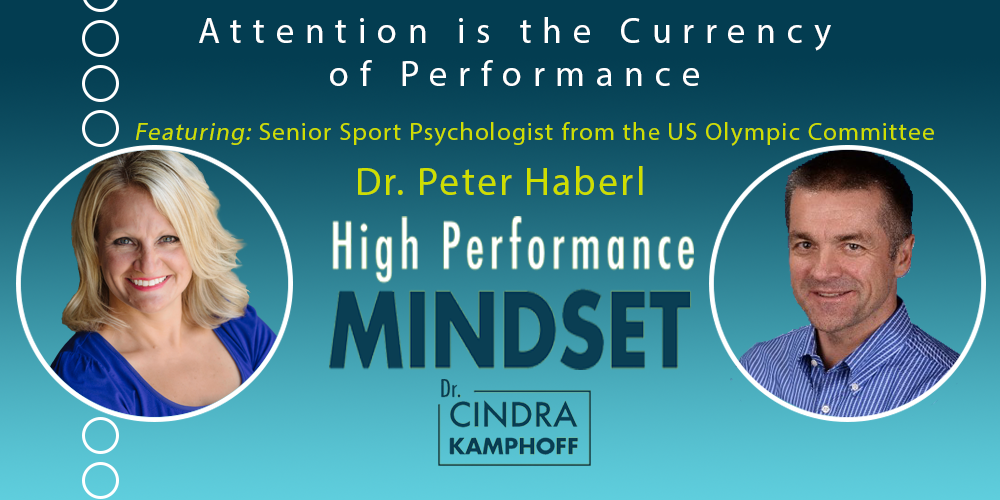Attention is the Currency of Performance, Dr. Peter Haberl, Senior Sport Psychologist from the United States Olympic Committee

Dr. Peter Haberl is a senior sport psychologist for the United States Olympic Committee. Through the USOC, he provides individual and team consultations and counseling sessions to various resident and national teams and athletes at the Olympic Training Center in Colorado Springs.
Before joining the USOC in 1998, Peter served as the sport psychology consultant for the 1998 U.S. Women’s Ice Hockey Olympic Team. He also served as the sports psychology consultant for USA Triathlon at the 2000 Summer Olympics in Sydney, Australia. During the 2000 to 2004 Olympic summer quad leading up to the Athens Olympic Games, Peter worked mainly with US Diving, US Synchronized Swimming, USA Triathlon and the US Women’s Volleyball team.
With the restructuring of the Performance Services Division of the USOC in 2006, Peter moved into the Team and Technical Sportfolio with a focus of providing services to team (USA Men’s & Women’s Water Polo, USA Women’s Indoor Volleyball) and technical (USA Shooting, USA Archery) sports in their preparation for the Games.
Born in Austria, he received his undergraduate degree in sports science from the University of Vienna, Austria, and earned a master’s degree in counseling and his Ed. D. in counseling psychology at Boston University. He is a licensed psychologist in Colorado.
In his applied work, Peter has a specific focus on mindfulness based interventions. Peter played professional hockey in Europe for 10 years, also representing Austria at two World Championships.
In this interview, Peter and Cindra talk about:
- Why attention is the currency of performance
- How to deal with uncomfortable thoughts and feelings
- What it looks like to have a flexible mind
- Why it’s important to ask yourself, “What do I do with my attention?”
- The difference between informal and formal mindfulness practices
- His unique opinion on the topic of confidence
- Why we need to decouple performance from our sense of self
